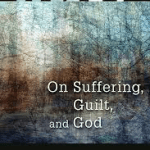I am a Proud Christian Nationalist (Guest Post by Richard Cantrell, evangelical pastor of a rural Southern church)
[ Dr. Olson’s July 4th post on the critical difference between patriotism and nationalism inspired me to submit a post that complements his thesis with an attempt to find common ground between American nationalism and Christian faith. ]
I was no more than 12 years-old when (in a civics class) I was first formally instructed in the civic religion whose creed is that America is a very special and unique country in which citizenship is a privilege. If you had asked me many years later as a young man what was special about being an American, I could have ably rehearsed the expected platitudes by reciting rote praise for my country as the world’s bastion of freedom, equality and democracy. I might have even managed to conflate some pious paeans of Lincoln’s — that our government by and for and of the People is the last best hope of earth.
You don’t need an advanced degree in philosophy or religion to understand that our continental citadel of equality and liberty — also known as the United States of America — would have been impossible without Christianity’s profound influence on the enunciation of its founding principles. Even the staunchly deist Thomas Jefferson, in a private letter to a friend in his first term as president, wrote this about Jesus — “His moral doctrines, relating to kindred & friends, were more pure & perfect than those of the most correct of the philosophers … inculcating universal philanthropy, not only to kindred and friends, to neighbors and countrymen, but to all mankind, gathering all into one family, under the bonds of love, charity, peace ….”
And I suppose because the blessings which the divine ethic of Jesus helped to father in the New World were so profuse, many millions of Christians today believe that America is a profoundly Christian nation. By that they mean not just that their religion deeply influenced our founding, but also that not being at least culturally a Christian is somehow un-American.
Although most may not use the term to describe themselves, all Christian nationalists claim that the United States was established as an explicitly Christian nation, and that America’s distinctively Christian identity and culture should be privileged and protected by the government and therefore reflected in our laws, public policy, and public school curricula. I hope and pray only a minority within this larger religious group espouse an ideology that merges their Christian and American identities..
Christian nationalism first came to the attention of many Americans after we saw crude crosses and Christian slogans and scriptures displayed among the people who violently stormed the Capitol on January 6th, 2021. While certainly only a small fringe of Christian nationalists would resort to violence to prosecute their ideology, the larger movement is based on what evangelical pastor and author Greg Boyd prophetically deems a false mythology – and Pastor Boyd is worth quoting at length here on the subject …
“The myth of America as a Christian nation, with the church as its guardian, has been and continues to be damaging both to the church and to the advancement of God’s kingdom. Among other things, this nationalistic myth blinds us to the way in which our most basic and cherished cultural assumptions are diametrically opposed to the kingdom way of life taught by Jesus and his disciples. Instead of living out the radically countercultural mandate of the Kingdom of God, this myth has inclined us to Christianize many ultimately pagan aspects of our culture. Instead of providing the culture with a radically alternative way of life, we largely present it with a religious version of what it already is. The myth obscures our vision of God’s uniquely beautiful kingdom and thereby undermines our motivation to live as disciples who are in the world but not of it.” [From The Myth of the Christian Nation.]
But in spite of my understanding that America is not a Christian nation in the falsely mythic sense, I can proudly declare that I am a Christian nationalist — who by an accident of birth also happens to be white. While it’s true that my ultimate allegiance must be to God and His Kingdom — as St. Paul exhorts, Christians are part of a “colony of Heaven on earth” (Phil 3:20) — I am devoted to America as an exceptional flowering of the Good News of God in Jesus.
While jingoist expressions of what’s been called American exceptionalism put our country on an uncritical pedestal, as a Christian who celebrates the heavenly leaven of the Good News that imbued our founding and revolutionary polity, I affirm that the United States has reflected more of God’s grace as a nation (both at home and abroad) than any other country in human history. Abolitionism and the civil rights movement could not have succeeded without their drawing deeply on the moral authority of Christian scripture and the teachings of Jesus to call all Americans to a far higher national standard than simply “the law permits it.”
An authentic Christian nationalism, without bending the knee to an oxymoronic “Christian nation,” reveres the American values of equality, justice and freedom of opportunity for all because these are all deeply biblical ideals. Christian nationalists can avow with confidence and pride that our God-given democracy is the surest earthly means to the broadest distribution of the blessings of those civic yet biblical ideals.
At the same time, with God’s help and wisdom, Christians must never shrink from censuring and correcting our national failures to live up to our founding principles — because a true American nationalist (whether Christian or not) is impatient to heed Lincoln’s frankly spiritual counsel that we serve “the better angels of our nature,” ever and always in sacred pursuit of “a more perfect union” … and to do less is both un-Christian and un-American.
My (Roger Olson’s) response: I think Richard and I are just using the word “nationalism” differently. According to the dictionaries I consulted, “nationalism” is belief that one’s nation is superior to all others. Also implied is that the nation has the right to follow its own rules and ethics that are wrong for other nations to follow.
*Note to commenters: Know that this post is by a guest; it does not necessarily reflect my views. If you choose to comment, make sure your comment is relatively brief (no more than 100 words), on topic, addressed to the guest writer, civil and respectful (not hostile or argumentative), and devoid of pictures or links.*














